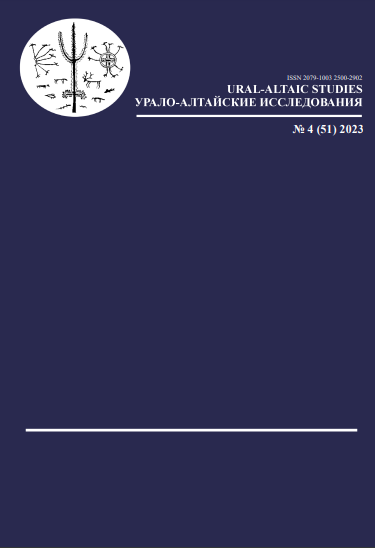Антипассивные показатели в тундровом ненецком языке
Antipassive markers in Tundra Nenets
Author(s): Ivan A. SteninSubject(s): Language studies, Morphology, Syntax, Finno-Ugrian studies
Published by: Институт языкознания Российской академии наук
Keywords: Tundra Nenets; Samoyedic languages; antipassive; verbal categories; valency-changing derivations; imperfectivization;
Summary/Abstract: The article deals with the Tundra Nenets word-formation markers, which can be called antipassive. Their attachment to the verb stem affects the syntactic status of the P-argument of the two-place transitive verb and may also impose certain semantic or pragmatic constraints on the interpretation of the P-argument. Antipassivization in Tundra Nenets is closely related to imperfectivization, which is typologically expected. On the one hand, imperfectivizing derivations, primarily associated with the zone of predicate plurality, can lead to antipassivization. On the other hand, the marker -ŋko, which can be called a specialized antipassive, attaches only to transitive verbs and necessarily leads to imperfectivization and detelicization. At the same time, it is not excluded from episodic contexts, although in most typical uses it implies a low degree of identifiability of the P-argument, its non-specific, indefinite, or generic status. The Imperfective marker -tə / -nə brings similar effects in combination with transitive verbs, but it is also attached to intransitive perfective verbs. Morphophonological restrictions on the distribution of the marker -ŋko are specially discussed, as well as the competition between Antipassive and Imperfective. Data from other Northern Samoyedic languages are also commented on. The system in Forest Nenets is similar to the Tundra Nenets one. In contrast to the Nenets languages, antipassive constructions are few and peripheral in Forest Nenets, while in Nganasan they are not found at all.
Journal: Урало-алтайские исследования
- Issue Year: 2023
- Issue No: 04 (51)
- Page Range: 80-105
- Page Count: 26
- Language: Russian

